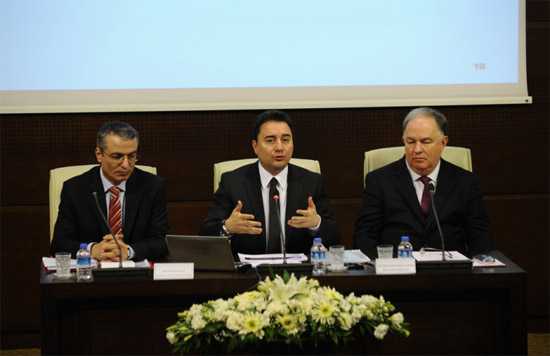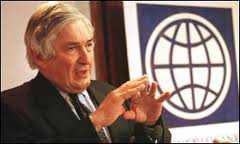BOB ADELMANN
 When Hollywood film director James Cameron (Avatar, Titanic, Terminator) announced that he was moving to New Zealand, preppers, fiscal doomsayers, and alarmists had a field day in deciphering his motives for moving, ultimately deciding that Cameron was moving so that he is better able to weather the massive monetary upheaval that is upcoming or he is escaping U.S. taxes and regulations.
When Hollywood film director James Cameron (Avatar, Titanic, Terminator) announced that he was moving to New Zealand, preppers, fiscal doomsayers, and alarmists had a field day in deciphering his motives for moving, ultimately deciding that Cameron was moving so that he is better able to weather the massive monetary upheaval that is upcoming or he is escaping U.S. taxes and regulations.
Marc Slavo, as an example, suggested ulterior motives other than those stated by Cameron: “While the move for the Canadian-born Cameron may initially be perceived as a rejection or denouncement of American policies and ideals … [he] may have ulterior motivations as evidenced by where he’s planning on moving and what he’s planning on doing once he gets there.”
The Associated Press reported that Cameron successfully applied to buy 2,500 acres of farmland and he “intend[s] to reside indefinitely in New Zealand and [is] acquiring the property to reside on and operate as a working farm.” Slavo is skeptical in light of Cameron’s lack of need to be working at all, having made in excess of $250 million last year, according to Salon magazine.
And Slavo is not persuaded that Cameron’s real reason is to be closer to the New Zealand headquarters of Weta Digital, which won an Oscar for its special effects in the movie Avatar. Nor is he persuaded that Cameron wants to be there solely to direct the sequel to Avatar scheduled to begin later this year. Slavo instead is thinking that Cameron knows that “farmland is one of the only reasonable physical assets to hold in the event of a major crisis,” and that Cameron’s disclosure on his New Zealand application for citizenship was simply cover.
Paul Joseph Watson and Alex Jones at Inforwars.com are of the same mind as Slavo:
If you think that Hollywood director James Cameron’s decision to leave America and move his entire family to a farm in New Zealand is simply to provide his kids with a “strong work ethic,” as Cameron claims, think again….
Cameron’s decision fits the trend of wealthy Americans pulling their money out of the country and reinvesting it to buy land in the southern hemisphere, escaping spiraling tax rates and protecting themselves against the potential for widespread social dislocation.
When John Malone, chairman of the board of Liberty Media with a personal net worth of $4.5 billion, reported that he had purchased a significant piece of property along the Quebec border, he explained in an interview with the Wall Street Journal his real motivation:
WSJ: What are the biggest risks for Liberty Media right now?
Malone: The concerns really tend to be much more macro: Is America going to make it, rather than are we going to make it? It’s pretty hard. If the country doesn’t make it, do any of us make it?
WSJ: What are you doing to protect against the weak American economy?
Malone: Well, my wife, who is very concerned about these things, moved all her personal cash to Australia and Canada. She wants to have a place to go if things blow up here….
We have a retreat that’s right on the Quebec border. We own 18 miles on the border, so we can cross. Anytime we want to we can get away.
As Slavo explained, Malone is not a tin-foil hat weirdo believing in things that go bump in the night: “He may not look like a doom and gloomer, but it sounds like he’s considered the possibility of a complete collapse in the United States of America. Otherwise, why suggest that if something were to happen, he could get away?”
Two years ago Brian Knowlton, writing in the Wall Street Journal, noted the paradigm change taking place even then among wealthy Americans increasingly frightened about the economic and social situation in the country. He quoted Jackie Bugnion, director of American Citizens Abroad (ACA): “What we have seen is a substantial change in mentality among the overseas community in the past two years. Before, no one would dare mention to other Americans that they were even thinking of renouncing their U.S. nationality. Now, it is an openly discussed issue.”
One of the reasons given for considering renunciation is the increasingly onerous rules invading privacy and personal finances. The Patriot Act has made it more difficult for Americans living abroad to keep accounts with international banks. If those banks cannot verify an American address, the accounts are closed. Daniel Flynn, an American citizen who lives in Belgium, wrote a letter to the ACA:
It seems the new anti-terrorist rules are having unintended effects. I was born in San Francisco in 1939, served my country as an army officer from 1961 to 1963, have been paying U.S. income taxes for 57 years, since 1952, have continually maintained [my] federal voting residence, and hold a valid American passport. [And yet my bank] said that the new anti-terrorism rules required them to close our account because of our address outside the U.S.
Another American living in Canada had the same problem. Kathleen Rittenhouse said, “I did not know that the Patriot Act placed me in the same category as terrorists, arms dealers and money launderers.”
The United States is the only industrialized country that requires citizens to pay income taxes on earnings abroad that are also being taxed by the country where they live. Some are calling this, properly, double taxation and are sick of it. And the IRS began investigations into foreign accounts, calling it a “voluntary offshore disclosure program,” that threatens the privacy and financial security of those with legitimate offshore accounts. Joe Field, a partner in a law firm in Hong Kong that caters to American citizens seeking to renounce their U.S. citizenship, says his firm is experiencing an “exponential increase” in the number of American citizens wanting to get out. He said:
Many people who looked to America as the protector now see America is bent on coming after them. We’re getting a whole new class of client who is someone who says, “I want to go into the [IRS] disclosure program and as soon as I complete it, expatriate.”
Their numbers are likely to increase as a loophole allowing wealthy Americans to move their monies and wealth offshore closes at the end of the year. Americans with a net worth of at least $2 million will have to buy their way out of the country by paying hefty exit fees and taxes, even on assets that have unrealized gains. The loophole allows them until the end of the year to give away up to $5 million without the fee being applied, saving enough in taxes to pay the fee that is levied.
And then there are those who are just disappearing altogether without a fare thee well. John Gaver, editor of Action America, wrote that there is a “vast and increasing number of wealthy US citizens who are just ‘dropping out’ — taking all of their wealth and leaving the US without renouncing. They just disappear off the US tax rolls and appear on some other country’s tax rolls.”
The number disgusted with how America treats its successful citizens continues to grow. As Bugnion of ACA notes, “It is a sad outcome, but I personally feel that we are now seeing only the tip of the iceberg.”
www.thenewamerican.com, 03 FEBRUARY 2012






